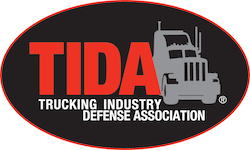As they say, even teachers need teachers, too. No matter how expert or well versed we are in any subject matter, it’s important to keep growing. Whether it’s learning about new trends in your industry or exploring the same topics in a new light, there’s never a better time to advance your education than now.
In 2002, the CEU Institute was founded by Michael & Jill Benner in an effort to help insurance carriers and vendor/service providers deliver, manage, and administer their continuing education requirements and internal training programs. The niche focus started in the insurance and healthcare industries but has since expanded to the legal and financial industries. The CEU Institute can administer multi-state, multi-license type credit for live training, large conferences and seminars, webinars, and web-based self-study.
Why is it so important for companies and individuals to understand continuing education?
According to Benner,
“Compliance is a major concern for licensed professionals and CE hours are typically required for the licensee to renew a license. We’ve seen many changes over the years. Most notably would be the regulatory changes that govern the continuing education requirements and processes. With each new change, our organization must adapt the changes and implement them as soon as they become effective because our clients are expecting our team to be the experts on the requirements. We also communicate these changes to our clients so they can plan and implement future training needs.”
If you or your company is newer to the continuing education world, the CEU Institute has so graciously provided a cheat sheet on abbreviations and professional licenses. In next week’s piece, we’ll detail several of the different specialty Risk Certifications that are common to the industry.
How does CE fit into the professional license requirement?
A professional license such as adjuster, agent, attorney, or accountant require the holder to maintain a certain amount of continuing education within a specific time period generally referred to as a “compliance period”. Failure to meet the required CE requirement and their license could lapse or be suspended until the requirement is met. This may also be accompanied with additional fees or fines.
What acronyms should I become acquainted with?
Some of the most common acronyms associated with the continuing education process of these professional licenses are:
- CE = Continuing Education (A general term used to identify continuing education for insurance and healthcare licensees)
- CEU = Continuing Education Unit (A unit of measure for the continuing education requirements. Licensing boards determine CEU’s differently for different types of certifications. Typically it’s based on the number of minutes attended equal to a specific amount of CEU’s earned)
- CLE = Continuing Legal Education (A general term used for the continuing education units earned by attorneys or others within the legal profession)
- MCLE = Minimum Continuing Legal Education (A term generally used by the legal boards to specify the minimum standards for CLE requirement. An attorney can meet their MCLE requirements by taking the necessary CLE courses)
- CPE = Continuing Professional Education (A term generally used to identify continuing education for financial professionals)
What are some other helpful resources?
- Insurance Adjuster CE requirements by state
- Insurance Agent CE requirements by state
- Attorney CLE requirements by state
- Accountant CPE requirements by state
For more information on continuing education credits, please visit the CEU Institute.








Great article!
Thank you, Pamela!